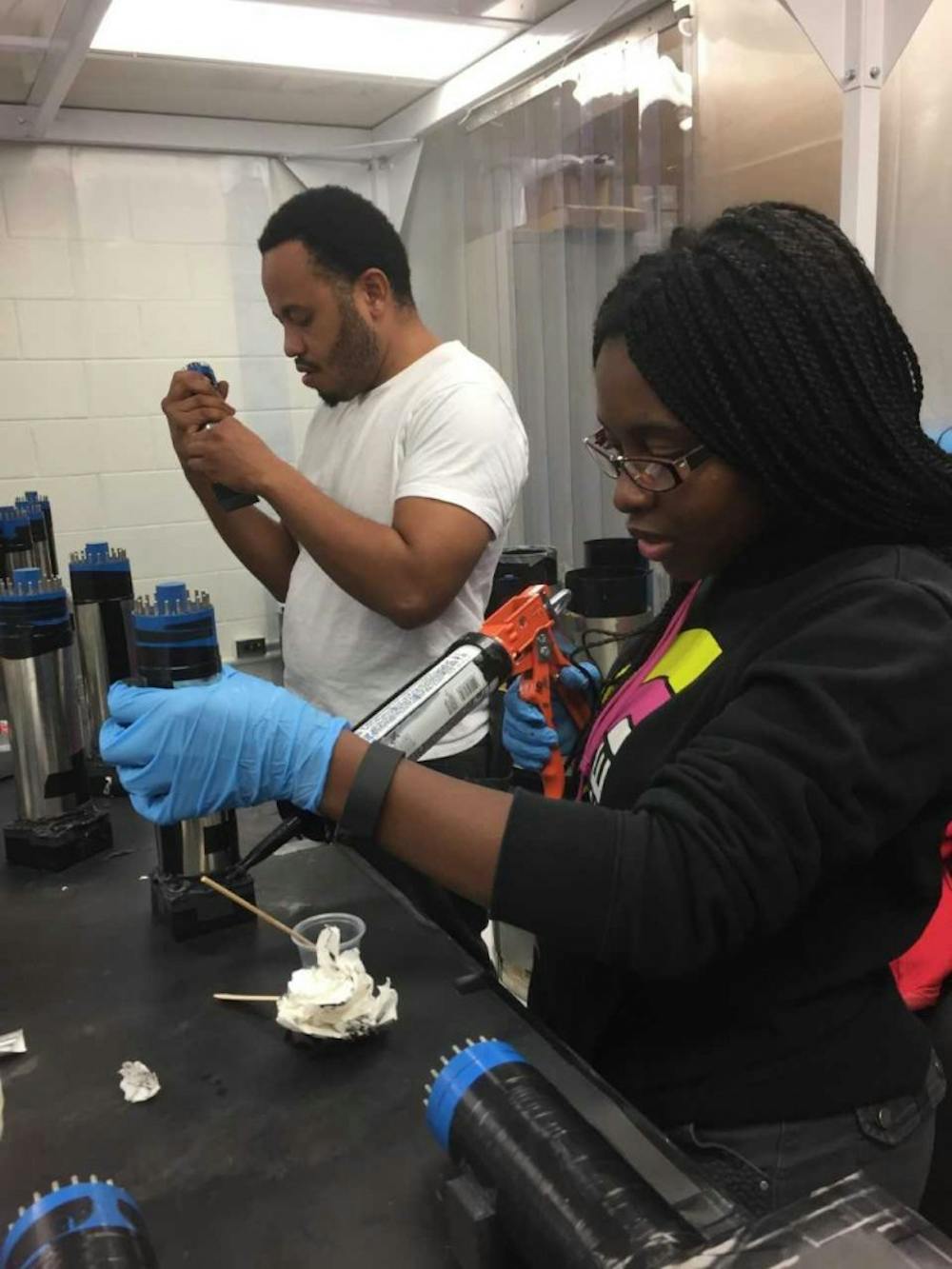For the first time since its creation in the 1960s, the Triangle Universities Nuclear Laboratory will add another school to its ranks — N.C. Central University.
The group was originally comprised of UNC-Chapel Hill, N.C. State University and Duke University, but NCCU has contributed to the consortium’s research and educational mission for decades.
The announcement was made Monday.
“There’s been a long history of Central faculty and students working here, and over the past decade they’ve taken on more of a leadership role in many areas,” TUNL director and UNC physics professor Art Champagne said. “It seemed like it was time to recognize that and make it official and have their logo on the webpage and all of that.”
Graduate and undergraduate students and faculty conduct research at TUNL.
Mohammad Ahmed, an NCCU professor, said a combination of reaching critical mass of faculty and students and having steady funding made this the right time for NCCU to become an official part of TUNL.
“We can now officially make a claim to those facilities,” he said. “It opens doors for further funding for us because now we are recognized as part of a major consortium.”
Ahmed is the current leader of the NCCU nuclear physics group conducting research at TUNL and held a faculty bridge position between NCCU and TUNL for six years. He said NCCU contributes to the diversity of TUNL in a way that will be beneficial for everyone involved.
“This is the first occasion that a (historically black college or university) has become part of a Department of Energy Center of Excellence,” Ahmed said. “We have really changed the portfolio in terms of diversity at TUNL and in terms of addressing disparities in the STEM field.”



